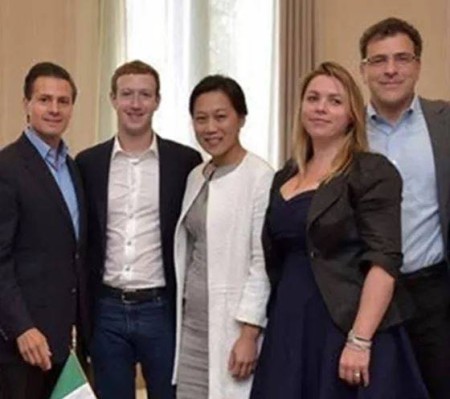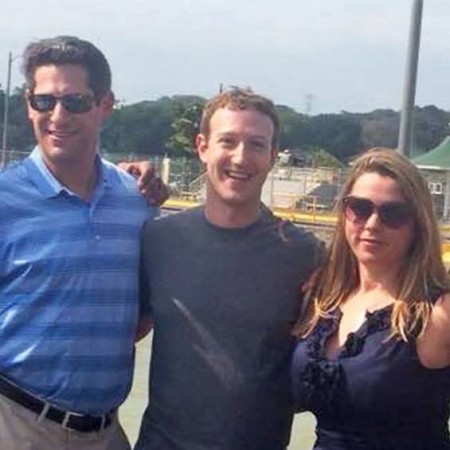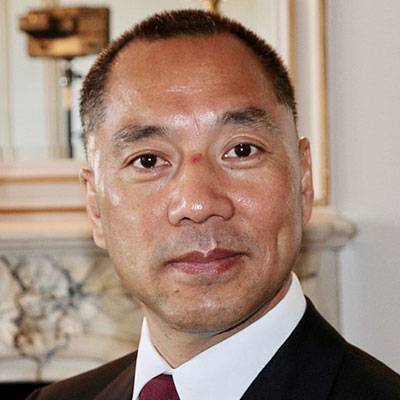Ripping off Facebook’s mask
Former insider accuses bosses of ‘lethal carelessness’.
Careless People: A story of where I used to work, by Sarah Wynn-Williams (Macmillan).
Former insider accuses bosses of ‘lethal carelessness’.
Careless People: A story of where I used to work, by Sarah Wynn-Williams (Macmillan).
The most famous New Zealander in business around the world for the past few weeks has been Facebook whistleblower Sarah Wynn-Williams.
Her book, Careless People, is a bestseller, guaranteed by the attempts of Meta and Mark Zuckerberg to shut it down, in the absence of a ban. Wikipedia has already noted it as the latest example of the Streisand Effect (coined because Barbara Streisand only increased interest in her clifftop mansion when she attempted to prevent photos of it from being published).
The ‘tell-all’ memoir of Wynn-Williams' six years as a senior executive at Facebook from 2011 to 2017 was written and printed in secret until March 11, when a torrent of launch publicity forced Meta’s hand.
It obtained an arbitrator’s decision that publication violated a “non-disparagement agreement” made when she was fired. It prevents her from promoting the book or giving interviews. She also cannot contact politicians in the United States, Europe, and elsewhere on issues of public concern, such as Meta’s interactions with the Chinese Government and alleged harm to teenage girls.

Sarah Wynn-Williams. Photo: NBC.
Wynn-Williams has not disclosed other terms of her severance from Facebook, including any payment. In the book, she was constantly concerned about her financial predicament if she had to cease being the family’s main income earner.
Since then, she has kept a low profile, though one report said from 2021 she had been living in London and working for the Minderoo Foundation, backed by Australian mining mogul Andrew Forrest. It has also been reported a near-complete manuscript was shown to potential publishers last May and an advance “north of US$500,000” was paid.
Her circumstances changed dramatically during the brief period between the book’s global release and the gagging order. CNN and NBC produced detailed stories, as did entertainment magazines Rolling Stone and Vulture (part of New York magazine). An hour-long interview with former New York Times opinion editor Bari Weiss is available on YouTube.
In the first week, some 60,000 hardback copies were sold in New York out of a total print run of 200,000, according to publisher Flatiron, an imprint of London-based Macmillan. It has denied allegations from Meta that the book has “out of date” claims and “false accusations”.
Meanwhile, further legal action is possible, and copies are still available in New Zealand bookshops. When I last checked, Careless People ranked sixth for non-fiction business titles at Amazon, which has a Kindle version. The cover available here drops the American subtitle, “A cautionary tale of power, greed, and lost idealism,” for a more anodyne one, while adding the words "Power. Greed. Madness."
Wynn-Williams launches into her life story with a shark attack at a Canterbury beach when she was 13. It was the first of two near-death experiences. The other was during serious complications after the birth of her second child in 2016, when maternity leave did not shelter her from corporate demands.
Wynn-Williams did not join Facebook until her 30s after a legal career in the New Zealand Government that took her to the United Nations in New York as an adviser on environmental and security issues. She then moved to the embassy in Washington DC, frustrated by her country’s lack of clout and importance in the diplomatic world.
She seeks a bigger role. A keen Facebooker, she was converted to its potential as a global force for good by keeping her in touch with her sister, Ruth Wynn-Williams, a TVNZ reporter in Christchurch, when other forms of communication broke down during the first major earthquake.

Sheryl Sandberg at the World Economic Forum, 2013.
Facebook, she believed, was “the greatest political tool of my lifetime” and she wanted to be part of it. She pitches for a job and lands one as the first “manager of global public policy” at the then-fledgling office in Washington DC.
Her enthusiasm is prescient: “It’s clear that in these next few years, Facebook and governments all over the world are going to be figuring out the rules for these giant, globe-spanning internet companies … It will affect elections, privacy, free speech, taxes, and so much else.”
She spends the next six hectic years living a dream that turns into a nightmare. As the lone Kiwi deciding public policy in a company dominated by a quartet of ambitious Harvard graduates, she is impressed by their work ethic, stamina, and rich financial rewards.
An early encounter between Facebook and a head of government was a visit to the Menlo Park headquarters in Silicon Valley by New Zealand’s own John Key. In an episode worthy of Bridget Jones, Key is happily chatting about Wynn-Williams' sister's forthcoming wedding, while Zuckerberg, not recognising Key, wonders aloud why he should pay more attention to a politician than his all-important software engineers.
It's a scene repeated many times over as Wynn-Williams steers Zuckerberg through other disastrous cases of political outreach: refusing to prepare before he met the president-elect of Indonesia, arriving late for an event with the president of Colombia, ad-libbing part of a speech to the UN General Assembly, appearing preoccupied when chairing a leaders’ forum at Apec, and getting turned down when he asked Chinese President Xi Jinping to name his unborn child.

Former President of Mexico Enrique Pena Nieto, Mark Zuckerberg,
Priscilla Chan, Sarah Wynn-Williams, and Elliot Schrage.
These stumbles contrast with Facebook’s chief operating officer Sheryl Sandberg, a celebrity feminist for her book Lean In (2013), whom Zuckerberg had poached from Google in 2007. To Wynn-Williams, Sandberg was the epitome of glamour and charm.
However, a darker side emerges with Wynn-Williams making some well-aired allegations about Sandberg’s tyrannical and predatory ways with her underlings, not to mention her hypocrisy of preaching how women should balance motherhood with a career. She resigned from Meta in June 2022 after being accused of using company resources for personal gain.
The others in the Harvard quartet also reflect what Wynn-Williams calls a ‘Gatsby’ culture of “careless people” who “smash things up … and then retreat back into their money … and let other people clean up the mess”.

Joel Kaplan, Mark Zuckerberg and Sarah Wynn-Williams.
Elliott Schrage, head of communications and public affairs, is also no longer with Meta after hiring a Republican-aligned company to discredit Facebook’s critics. Joel Kaplan is Meta’s main man in Washington and responsible for relations with the Trump administration. He joined Facebook after being White House deputy chief of staff for former President George W Bush.
Complaints about Kaplan’s inappropriate advances toward Wynn-Williams led to an internal inquiry that exonerated him and led to her dismissal on grounds of “poor performance and toxic behaviour”.
These personality profiles add plenty of controversy to the narrative but it’s just one layer of serious matters. It’s alleged Facebook employees worked with Chinese authorities on developing software that met demands for censorship, data sharing, facial recognition, encryption, photo tagging, and other surveillance features denied to other governments.
China has long been a target for Zuckerberg, as it provides the largest source of revenue for Meta outside the US despite none of its platforms, including WhatsApp and Instagram, being active there. That’s some US$18 billion ($31b) according to the latest filings.
Wynn-Williams has lodged one claim to the US Securities and Exchange Commission (SEC): that Zuckerberg agreed to block the account of Guo Wengui, a high-profile Chinese dissident and businessman living in the US. She has also registered as a whistleblower with the SEC and the Department of Justice.

Guo Wengui in 2017.
In 2012, Wynn-Williams attended a farcical World Economic Forum in strife-torn Myanmar, where Facebook was effectively the only form of the internet. It was later used to disastrous effect in generating genocidal violence against the Rohingya minority in a continuing civil war. She describes the failure to address this as an example of “lethal carelessness”.
This was also reflected in the attitude of Facebook chiefs to claims of unethical political campaigning, notably in the Trump campaign of 2016, and the emotional exploitation of vulnerable teen girls through advertising algorithms.
This could have been avoided, according to Wynn-Williams, if Facebook’s top brass was aware of its “sins of omission”. She writes: “They really could have chosen to do it all differently and fix so much of what’s been destructive about Facebook.”
In the interview with Weiss, Wynn-Williams reiterates that the reason for her whistleblowing is to prevent a repetition of past mistakes in the era of artificial intelligence.
“We’re in a moment now where technology CEOs and political leaders around the world are joining forces and compounding their influence, compounding their power, and that’s got consequences for everybody,” she said. “People need to understand what has actually gone on.”
She describes AI as a ‘winner take all’ contest between the proprietary systems of Microsoft and Google, and the open-source path advocated by Meta and China’s DeepSeek. Regardless of future litigation involving Careless People, I am sure more will be heard from Wynn-Williams as this debate proceeds.
Careless People: A story of where I used to work, by Sarah Wynn-Williams (Macmillan).
Nevil Gibson is a former editor-at-large for NBR. He has contributed film and book reviews to various publications.
This is supplied content and not commissioned or paid for by NBR.